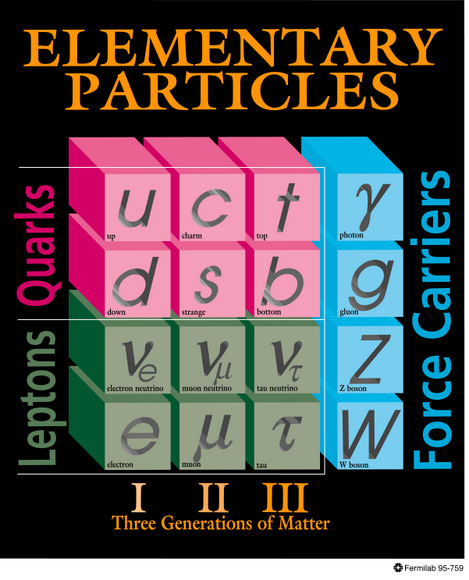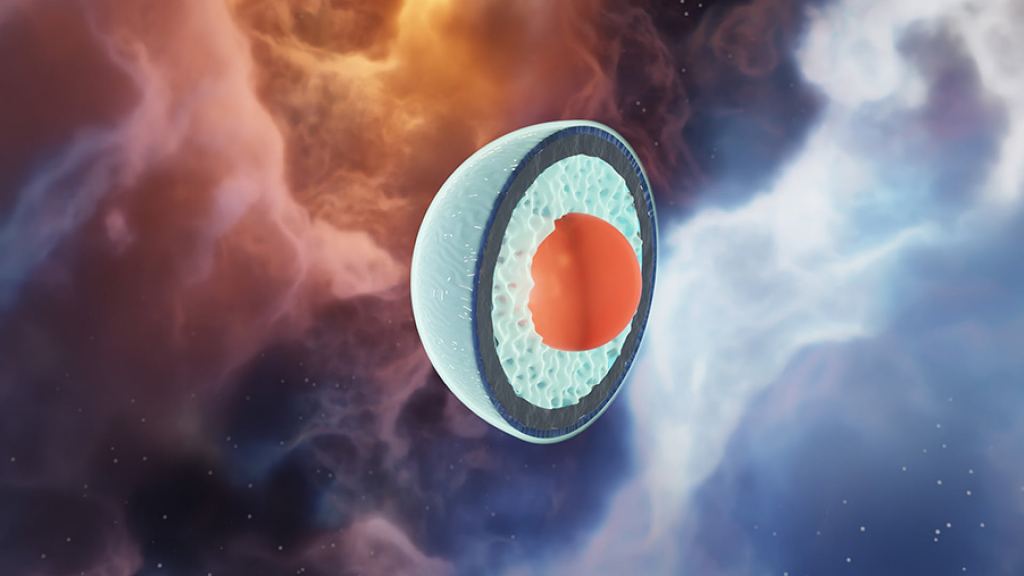Maybe “Boson Clouds” Could Explain Dark Matter
By Brian Koberlein
The nature of dark matter continues to perplex astronomers. As the search for dark matter particles continues to turn up nothing, it’s tempting to throw out the dark matter model altogether, but indirect evidence for the stuff continues to be strong. So what is it? One team has an idea, and they’ve published the results of their first search.
The conditions of dark matter mean that it can’t be regular matter. Regular matter (atoms, molecules, and the like) easily absorbs and emits light. Even if dark matter were clouds of molecules so cold they emitted almost no light, they would still be visible by the light they absorb. They would appear like dark nebula commonly seen near the galactic plane. But there aren’t nearly enough of them to account for the effects of dark matter we observe. We’ve also ruled out neutrinos. They don’t interact strongly with light, but neutrinos are a form of “hot” dark matter since neutrinos move at nearly the speed of light. We know that most dark matter must be sluggish, and therefore “cold.” So if dark matter is out there, it must be something else.
In this latest work, the authors argue that dark matter could be made of particles known as scalar bosons. All known matter can be placed in two large categories known as fermions and bosons. Which category a particle is in depends on a quantum property known as spin. Fermions such as electrons and quarks have fractional spin such as 1/2 or 3/2. Bosons such as photons have an integer spin such as 1 or 0. Any particle with a spin of 0 is a scalar boson.

While it seems like a trivial distinction, the two kinds of particles behave very differently when brought together in large groups. Fermions can never occupy the same quantum state, so when you try to squeeze them together, they push back. This is why white dwarfs and neutron stars exist. Gravity tries to push electrons or neutrons together, but the Fermi pressure is so strong it can resist gravity (up to a point). Bosons, on the other hand, are perfectly happy occupying the same state. So if you supercool a bunch of bosons (such as helium-4) they can settle into a strange quantum object known as a Bose-Einstein condensate.
The only known scalar boson is the Higgs boson. The Higgs can’t be dark matter given its known properties, but some theories propose other scalar bosons. These would not interact strongly with light, only with gravity. Since light can’t significantly heat them up, over time these scalar bosons would cool and collapse into large clouds. So perhaps dark matter is made of large diffuse clouds of scalar bosons.

It’s an interesting idea, but how could you prove it? It turns out that since scalar bosons interact gravitationally, they also interact with gravitational waves. Depending on their mass, scalar bosons might also decay by emitting gravitons. As a result, scalar bosons could create long-lasting gravitational waves that have a similar frequency. It’s the gravitational equivalent of a faint hum. So the team looked at gravitational wave data from LIGO and Virgo. They looked for evidence of a gravitational hum in the 20 – 600 Hz range and found nothing. Based on their work, the authors conclude that there are no young scalar boson clouds in our galaxy. There are also no old and cold scalar boson clouds within 3,000 light-years of Earth.
This study doesn’t rule out scalar bosons completely, but it does put some strong limits on the idea. And right now that seems to be the story of dark matter. In our search to discover what it is, we continue to find out what it is not.
Reference: Abbott, R., et al. “All-sky search for gravitational wave emission from scalar boson clouds around spinning black holes in LIGO O3 data.” arXiv preprint arXiv:2111.15507 (2021).
The post Maybe “Boson Clouds” Could Explain Dark Matter appeared first on Universe Today.

December 7, 2021 at 03:37AM
via Universe Today read more...

Post a Comment